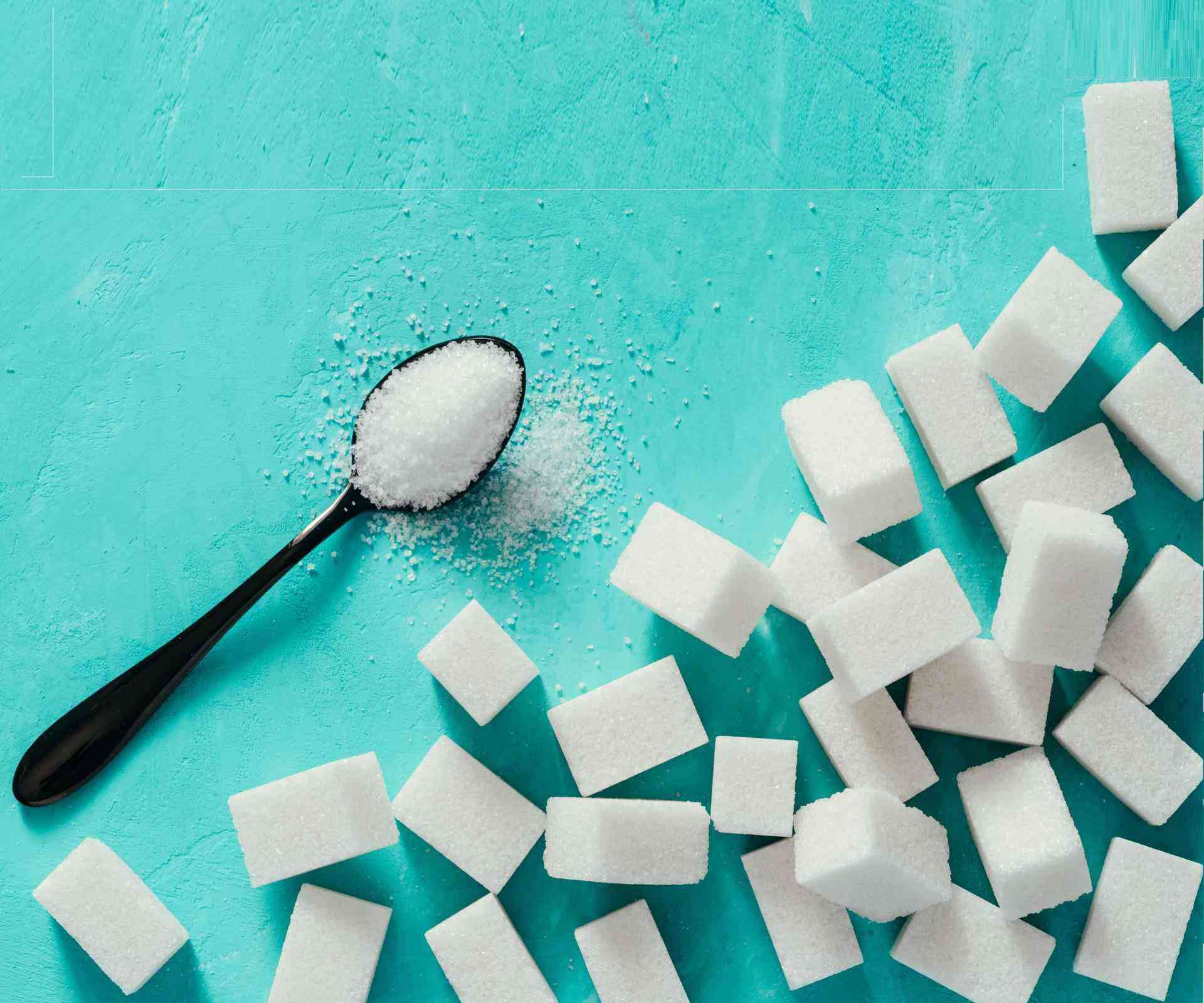 We are well aware of sugar’s effect on our waistlines and we know its corrosive effect on the teeth. What you may not know, is that sugar could be at the root of persistent skin problems?
We are well aware of sugar’s effect on our waistlines and we know its corrosive effect on the teeth. What you may not know, is that sugar could be at the root of persistent skin problems? Guidelines by both the NHS and American Heart Association advise that women should have no more than six teaspoons of sugar a day and nine for men (lucky devils). When you consider that a can of coke contains over nine teaspoons of the sweet stuff, it’s fair to assume that many of us are eating and drinking way more sugar than we should be.
Sugar science
Nutritionist Saadia Baig of Haven Kinesiology has developed an approach, which considers your unique physiology, history, and lifestyle, on the basis our health issues don’t often lie in the same area as our symptoms. Baig says: “When we eat sugar and refined carbohydrates, such as white pasta or rice, our body experiences a huge surge of insulin and this causes a burst of inflammation throughout the body. It’s this inflammation, known as glycation, that can be damaging to your skin.”The number one way that sugar sabotages the skin is premature aging. The inflammation caused by insulin spikes, creates enzymes that break down the collagen and elastin in your skin, the proteins that maintain youthful-looking skin.
Baig says: “Digested sugar attaches onto the collagen in your skin, causing the proteins to become discoloured, weak, and less supple. This shows up on the skin as sagging, wrinkles and a loss of radiance.”
Premature ageing is not the only skin problem that sugar is responsible for, Baig warns: “Sugar triggers excess testosterone, a hormone associated with oily skin and large pores. It can also cause excess hair growth and uneven pigmentation.
“Inflammation weakens your immune system, and sugars can upset the delicate balance of yeasts and bacteria that regulate your gut health. Not only does this exacerbate an already weakened immune system, and an imbalance of unfriendly bacteria and yeast can also trigger or worsen acne and rosacea.”
Take a glycation vacation
The good news is that we don’t have to stop eating sugar altogether. “Sugar is essential for our metabolism and we couldn’t and shouldn’t eliminate all types of sugar from our diets,” says Baig. “Understanding the glycaemic index, the scale which determines how quickly blood sugar levels rise after eating is key to helping us make better choices for your skin.”Do and don’ts of sugar
Baig recommends avoiding white sugar, high-fructose corn syrup and simple carbohydrates in favour of ‘good carbohydrates’ like brown rice and whole-grain bread, which produce less glucose and more slowly.Do:
- Eat frequent, balanced meals. Lowering your sugar intake does not mean eating less. The goal is to keep blood sugar levels consistent. Make sure to fuel up with low-glycaemic, high protein food every three hours to avoid insulin spikes.
- Go for complex carbohydrates, like brown rice and vegetables, which are broken down into glucose at a slower rate and don’t cause an insulin spike. Low-glycaemic foods, like beans, nuts and whole grains delay sugar absorption and help control blood sugar levels.
- Eat protein at the start of a meal. Protein doesn’t stimulate insulin spikes and helps to balance out the inflammatory effects triggered when you eat process sugars.
- Healthy fats are your friend. Include fats in your diet, such as omega-3s and avocado to keep your skin looking pump, springy and glowing.
Don’t:
- Avoid skin-sapping simple carbohydrates which rapidly break down into glucose and result in insulin spikes. Avoid foods that are inflammatory, high-glycaemic or high in saturated fats like white bread, sweets, fried food, ice cream, fruit juice, packaged snacks and sodas.
- One more ‘S’ to avoid is stress! Stress spikes insulin levels just like eating sugar can. Look after your skin by keeping your stress levels to a minimum.
 By Miriam Christie
By Miriam Christie